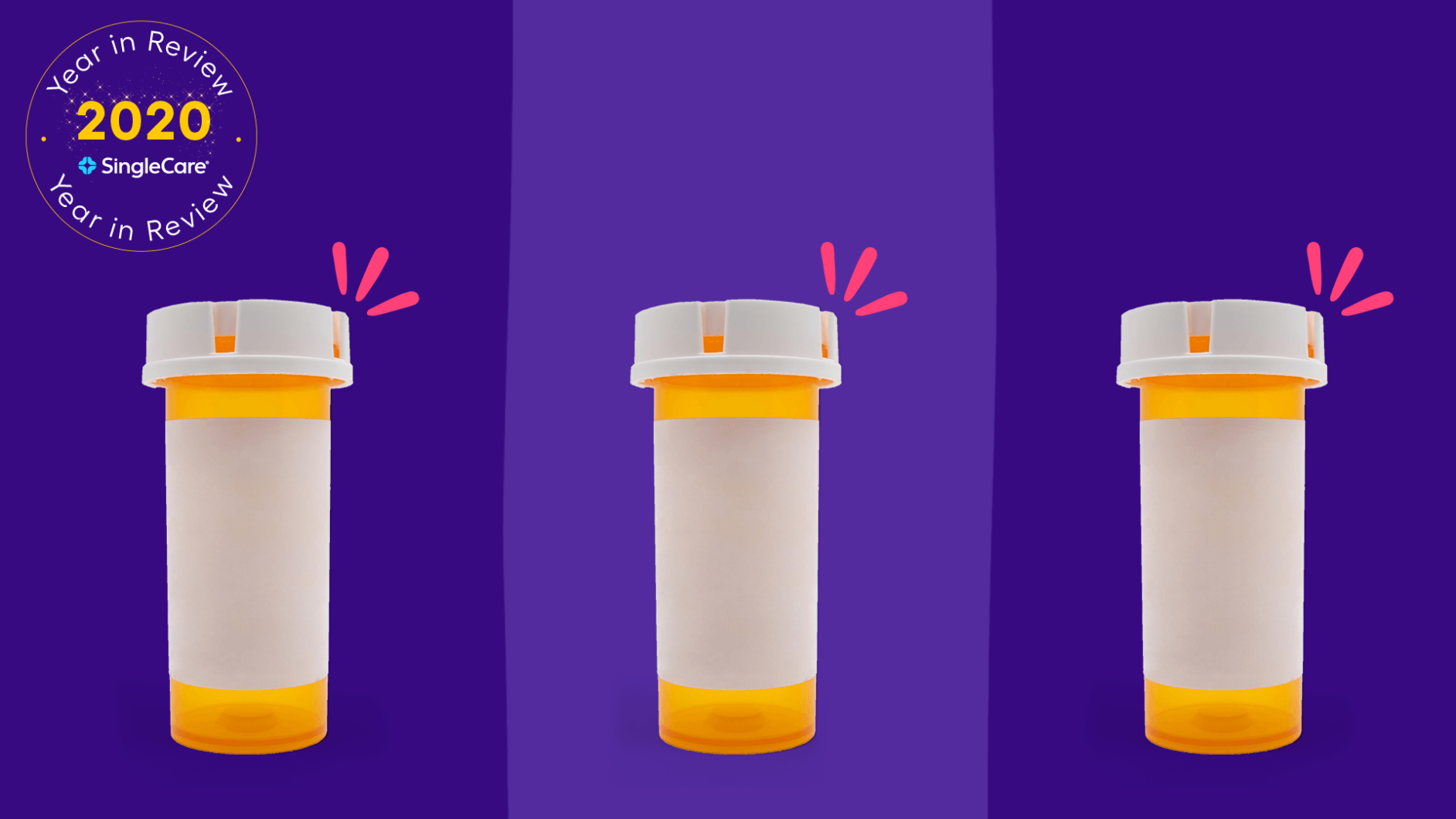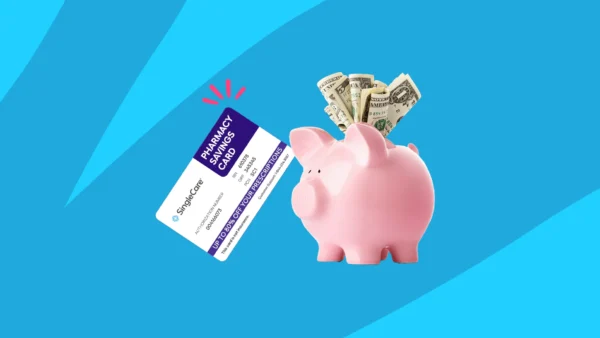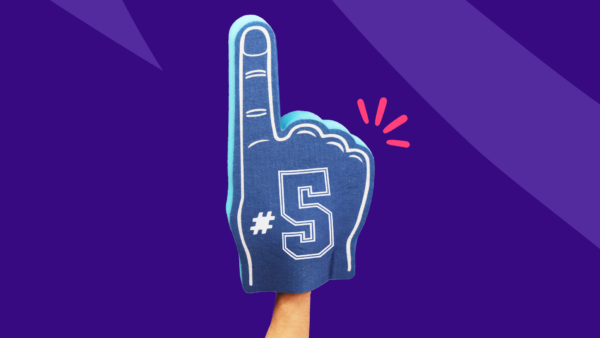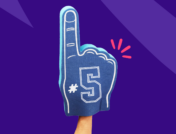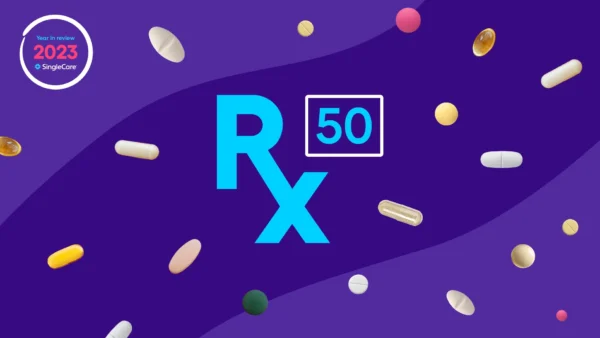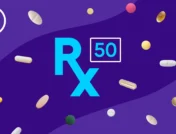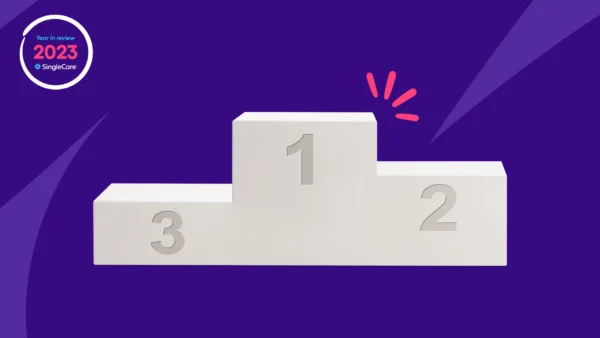When it comes to saving money at the pharmacy, SingleCare users know they can present their card for discounts on more than 10,000 prescriptions. And over the past year, cardholders have taken full advantage of these savings, filling prescriptions that ran the gamut from thyroid medications to topical acne treatments.
When it came to the most common drug classes of 2020, a number of trends emerged. Antihypertensives were popular—unsurprising given the prevalence of heart attack and stroke among Americans—as were thyroid agents and antidiabetics. Vitamins, pain relievers, and antihistamines were also necessities for 2020. And with depression on the rise due to the COVID-19 global pandemic, antidepressants ranked high, too.
The most-filled drug classes of 2020*
There are many more findings to be had in the full list. So without further ado, here are the 10 most common drug classes (and the top five medications in each category) on SingleCare in 2020:
1. Antihypertensives
High blood pressure medications were the most common drug class among SingleCare card users in 2020, which isn’t surprising to Bethesda, Maryland–based primary care physician and internist Matthew Mintz, MD, FACP. “The single leading cause of death in the U.S. (even with COVID-19) is heart attacks,” Dr. Mintz says. “One of the major contributors to heart attacks is high blood pressure or hypertension.” High blood pressure also increases the risk of stroke (the second leading cause of death in the U.S.), which is why it’s so important to maintain healthy levels, defined as a blood pressure below 120/80 mmHg., according to the American College of Cardiology.
Unfortunately, many Americans are falling short: 45% have hypertension, according to the Centers for Disease Control and Prevention (CDC), and only about 1 in 4 have their condition under control. While lifestyle changes like exercising more and eating a healthy diet can go a long way toward lowering blood pressure, they sometimes aren’t enough on their own, and that’s when a medication may be necessary—especially for older Americans.
“High blood pressure is very much affected by age,” Dr. Mintz says. “As we get older, our blood vessels age and stiffen, causing a rise in blood pressure. At one time, hypertension was thought to be a natural aging process, but we now know that treating high blood pressure can reduce heart attacks and strokes in seniors.”
RELATED: How to lower blood pressure quickly and naturally
2. Antidepressants
Despite their name, medicines that fall in the antidepressant category treat a host of mental illnesses, including generalized anxiety disorder (GAD), obsessive compulsive disorder (OCD), post-traumatic stress disorder (PTSD), and social anxiety disorder.
Approximately 40 million adults in the U.S. have some sort of anxiety disorder, according to the Anxiety and Depression Association of America, yet only 37% of those people are being treated. Another potential factor driving antidepressant use in 2020 may very well be the pandemic. For many, mental health issues have been a particular challenge during quarantine, with one study suggesting depression rates have tripled among U.S. adults this past year.
RELATED: Medications that treat anxiety and depression
3. Thyroid agents
Another common ailment among Americans is thyroid disease—more than 12% of the population will develop some sort of thyroid condition during their lifetime, according to the American Thyroid Association. Women, in particular, are susceptible; they are five to eight times more likely than men to develop an issue.
Thyroid conditions vary—from hyperthyroidism, in which the thyroid produces too many hormones—to hypothyroidism, in which the thyroid produces too few hormones. “There are many causes for hypothyroidism but the most common cause is an autoimmune disease known as Hashimoto’s thyroiditis,” says Dr. Mintz. “Patients whose thyroids don’t make enough thyroid hormone usually need a thyroid replacement, like levothyroxine. Without it, patients can develop symptoms of low thyroid which include weight gain, dry skin, constipation, and hair loss.”
RELATED: Hypothyroidism treatments and medications
4. Analgesics/anti-inflammatories
Commonly referred to as pain relievers, analgesics come in multiple forms, from over-the-counter pills (Tylenol) to prescription medications (meloxicam). The most popular analgesic among SingleCare card users in 2020 was, perhaps unsurprisingly, ibuprofen.
Typically branded as Advil or Motrin, ibuprofen is a nonsteroidal anti-inflammatory drug (NSAID) used to treat fever and pain and is available without a prescription. (Doctors may also prescribe ibuprofen at a higher dose.) Among the over-the-counter NSAIDs, ibuprofen is considered to be the most gentle on the GI tract.
RELATED: Is Tylenol an NSAID?
5. Antidiabetics
Hovering near the middle of SingleCare’s 2020 list are antidiabetics, the most popular of which was metformin (typically branded as Glucophage, Riomet, or Glumetza).
“Metformin works in multiple ways to help control blood sugar levels,” says Kristi C. Torres, Pharm.D. in Austin, Texas, a member of SingleCare’s Medical Review Board. “It slows the production of glucose. It also decreases the intestinal absorption of glucose. Finally, it improves insulin sensitivity by increasing peripheral glucose utilization. The end result of these actions are lower blood sugar levels and better glycemic control for diabetic patients.”
The CDC estimates that 34.2 million Americans (of all ages) have diabetes, with diabetes rates increasing with age.
RELATED: Diabetes statistics
6. Vitamins
Vitamins were another popular purchase among SingleCare users in 2020, with vitamin D (in various forms) far and away outpacing its competitors. Vitamin D plays a number of roles in the body, including aiding in calcium absorption, immune functions, and muscle and nerve activities, according to the National Institutes of Health. Too little vitamin D can lead to brittle bones, a condition known as rickets in children and osteomalacia in adults. In addition to supplements, vitamin D can be acquired through exposure to sunshine and fatty fish like salmon and tuna. After vitamin D, vitamin C was the most popular purchase, followed by vitamin B-6 and vitamin B-1.
RELATED: What vitamins should I take?
7. Penicillins
Scottish researcher Sir Alexander Fleming discovered penicillin in 1928, and over the ensuing century, the drug has become the most-prescribed antibiotic around the world. “Even though penicillin-derived antibiotics have been around a very long time, they still work in a variety of infections and thus remain quite popular,” explains Dr. Mintz. “Other than causing an allergic reaction, which sometimes can be serious, penicillin antibiotics are usually well tolerated by most people.”
Penicillin, and its relative amoxicillin, are used to treat a number of bacterial infections, including ear, lower respiratory, urinary tract, and skin infections. As far as efficacy goes, amoxicillin is able to treat a broader range of bacteria than penicillin. However, neither drug—nor any that fall in the penicillin family—can or should be used to treat viral infections.
RELATED: Do you really have a penicillin allergy? Check again.
8. Dermatologicals
As the name would suggest, dermatologicals are used to treat skin conditions, and among SingleCare users, triamcinolone cream was the most popular. “Topical triamcinolone is used to treat a variety of skin conditions including exfoliative dermatitis, hypersensitivity reactions, and reactions related to lupus and Stevens-Johnson syndrome,” Dr. Torres says. “[The dental paste] can also be used topically in the mouth for oral inflammation.”
Runners-up in the dermatologicals category include tretinoin, a vitamin A derivative otherwise known as Retin-A, which treats acne and sun-damaged skin; finasteride, otherwise known as Propecia, which is an oral tablet used to treat hair loss in men; and hydrocortisone, which is used to treat itchy, swollen skin and can ease eczema symptoms.
RELATED: Psoriasis vs. eczema: Can you treat them the same way?
9. Beta blockers
Beta blockers are the second blood pressure medication class to rank among SingleCare users this year. They work by blocking “beta adrenergic receptors in the heart and vasculature, which causes a decrease in heart rate and cardiac output,” Dr. Torres says. “They can be prescribed for a variety of reasons including hypertension, angina (chest pain), and heart failure.”
Beta blockers are often also prescribed to patients who have had a heart attack, adds Dr. Torres, as they have been shown to decrease mortality levels.
RELATED: What is a beta blocker?
10. Antihistamines
Rounding out the top 10 list are antihistamines, which block histamine receptors and are used for a number of allergy-related conditions. “These can include allergic rhinitis (runny nose), itching, and hypersensitivity reactions,” Dr. Torres says. Antihistamines can also be used for bug bite reactions and, in some cases, as a short-term insomnia antidote. “Benadryl (diphenhydramine) is known to cause significant drowsiness as a side effect, and is sometimes used with the intent to help with sleep,” Dr. Torres says. Check with your doctor before using Benadryl, though, because certain conditions are not compatible with the medication.
RELATED: Non-drowsy Benadryl: What are your options?
*The most-filled drug classes were ranked by net prescription fills through SingleCare from Jan. 1, 2020 through Oct. 31, 2020, excluding opioids and weight-loss drugs.



